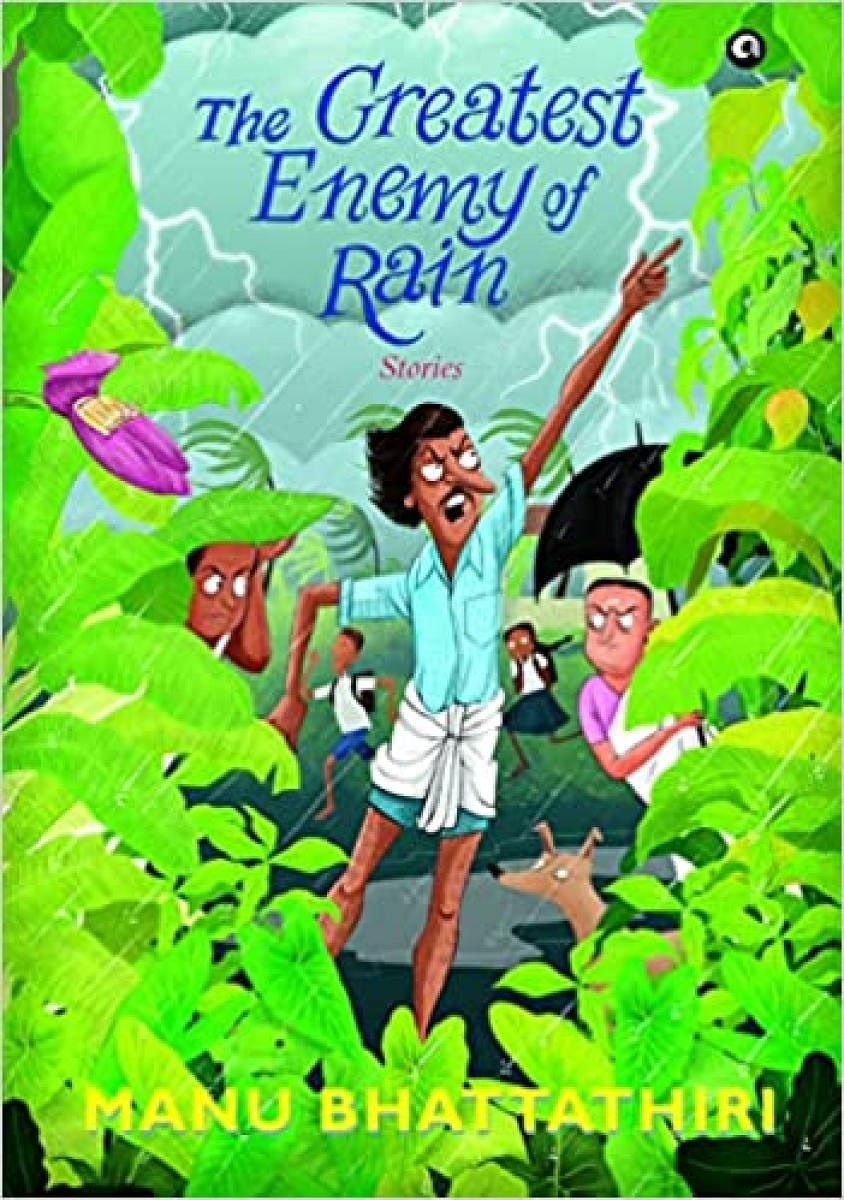
Over the course of the three books he has written, this one being the fourth, Manu Bhattathiri has become the Small Town Adept. He creates interesting characters who invariably live in picturesque hamlets in Kerala, at the edge of which a river runs, meanders or flows sluggishly. Not all these characters are likeable; what they are is a neat meld of human frailties and follies. Bhattathiri throws fistfuls of wry humour (genus Keralica) into the mix and the result is invariably an entertaining read.
The Greatest Enemy of Rain, his latest work, is more of the same. The book is a collection of short stories driven almost solely by the doings of the characters who populate these tales. And so we meet Gopi, who loathes the rain with an intensity hard to believe; of course, some very funny things follow this hate-hate relationship (yes, it would seem the rain loathed him too) and by the end of the story, the reader begins to respect Gopi who, after all, has taken on an element of nature with a lifetime record of winning easily. Gopi’s touching belief that God had created humans to take their feedback once in a while about creation is rudely shattered by the rain. We meet Gopi’s comely wife Kavitha who had had impeccable training before she wed Gopi; she knew all the rules, like eating less so you don’t put on weight, talking softly, not showing one’s teeth while laughing, never staring at people, talking softly in the presence of young men, showing an interest in ‘womanly duties’ like washing vessels and cleaning tables, and such. It is, of course, another matter that Kavitha promptly jettisoned all the rules after her marriage.
We read of an unnamed man who eats his pets — parrot, pig, etc — in a random fashion made gruesome by its very randomness; we observe humankind’s penchant for forever being in a frenzy; we learn that purposelessness has a way of travelling to the belly and turning into molten agony there; that the city throws up a series of cacophonies every day; we understand Shabari who, in a dog-eat-dog world, preferred to stand apart and watch dogs eat other dogs.
A neat balance
It is a neat balance between the men and women who people the stories. Just as the reader shakes their head at the shenanigans of men like Sharada Teacher’s husband, an old man known as ‘Uncle’ and every store’s nightmare customer Mr D’Souza, we also read of Radhamma, the woman who loved to be correct, the early feminist Mista and the long-suffering Mrs Pariera, all strong women characters. Bhattathiri adopts a neutral tone, but his bias towards the more eccentric characters peeps through and finds an immediate resonance with the reader.
Not all the 14 tales are equally diverting, with one or two wrapping themselves in a ponderous cloak, like the Ancient Family using fire to cook meat, and the creepy tale of a 60-year-old man going off in search of a flower-filled Utopia with a nubile young girl.
Redressing that balance though, are some masterly studies of human nature, as in what Saroja Teacher’s husband got up to when she went travelling, and the best piece for my money, young Shravan Kumar’s last day on earth, where he bit and snarled at his life, little knowing he had just hours to live.
Far from his life flashing before his eyes, Shravan’s final musings are on the futility of things and how he could easily be saved if only people would figure out what needs to be done next. Another wonderful story, which reads rather like a Manoj N Shyamalan script, is of the Sound that overwhelms a village on the brink of a forest, and how people adapt, in an effort to live with the terrible and constant din.
There is an excellent portrait of a man with OCD; there is Buster 235, the supercomputer tasked with the near-impossible task of proving/disproving the existence of God. As allegories go, this story is quite thinly disguised but bang-on. Oh, and there’s a ghost story with an unexpected twist.
Basically people like us. And people so not like us.